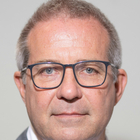Global development goals need to be financed – but how?
Janus, Heiner / Stephan KlingebielThe Current Column (2013)
Bonn: German Development Institute / Deutsches Institut für Entwicklungspolitik (DIE) (The Current Column of 8 April 2013)
Bonn, 8 April 2013. The UN General Assembly next September will be an important milestone on the road to a future global development agenda to replace the Millennium Development Goals (MDGs) after 2015. The comprehensive consultations undertaken by the United Nations (UN) will inform the discussions, as will the report yet to be produced by UN Secretary-General Ban Ki-Moon’s High-Level Panel on the Post-2015 Development Agenda. The 2013 European Report on Development (ERD) prepared by the German Development Institute / Deutsches Institut für Entwicklungspolitik (DIE) together with the European Centre for Development Policy Management (ECDPM) and the Overseas Development Institute (ODI) similarly considers the “Post-2015 Agenda”. The report entitled “Post-2015: Global Action for an Inclusive and Sustainable Future” identifies key factors that may help to shape a new global partnership for development.
However, the international community has a long way to go before new global development goals are adopted. Many fundamental issues are discussed only in rough outline and are far from being resolved. For example, to what extent should the development goals be influenced by ecological sustainability in the future? Should certain goals apply to all countries – including the industrialised countries and their problems in the area of social and economic inequality, for instance? What views do major emerging countries – above all, China and India – have on the post-2015 debate? These questions must be addressed in the coming two and a half years.
For any future development agenda to be successfully implemented, a number of requirements must be satisfied. Countries must accept the goals, adjust them in their policies to their own circumstances and, finally, achieve them. Regionally and globally, important arrangements must be made to bring about transnational action for environmental goals, for instance, or to ensure better regulation of financial markets. This is particularly important for developing countries.
Whatever the post-2015 global development goals may be, the implementation of policies at national and international level will require financial resources. Setting well-intentioned goals without thinking about the means of achieving them – including the funding involved – would be careless, because all political measures must be examined for their feasibility if they are not to remain mere declarations of political intent.
The MDGs were proclaimed in 2000, but it was to be two years before an international conference was held in Monterrey, Mexico, with precisely that as its aim: financing the achievement of the MDGs. In the Monterrey Consensus conference participants agreed, among other things, to increase their financial commitments to development cooperation. In return, developing countries were to make greater efforts to ensure the resources provided were used effectively. This time appropriate means of safeguarding the financial foundations for the future global development goals should be considered at an early stage. States should advocate the convening of a “Monterrey 2.0” conference on the financing of the post-2015 agenda. And this for two reasons in particular.
First, adequate funds must be mobilised at national and global level at an early stage in the form of development aid, for example. However, it would be neither realistic nor appropriate for the subject to be viewed in narrow, development aid terms, since development aid is waning in importance in many developing countries as their own economic strength visibly increases. In addition, given the often huge budgetary problems they are facing, traditional donors are unlikely to provide significantly more development aid. Furthermore, an important insight already emphasised in Monterrey is gaining ground: development aid is one way, but only one way, to finance development. It is, as a general rule, countries’ own budgets, largely financed from their own taxes, that bear the brunt of public investment and recurrent expenditure. At the same time, the focus of the debate on development financing is widening to include other sources of funding, such as private international financial flows (foreign direct investment and migrants’ remittances), private foundations (the Bill and Melinda Gates Foundation), “new donor countries” (Brazil, India and China) and global taxes (global financial transaction tax).
Second, financial questions concern not only the need for funding, since the form that that funding takes always has major implications for the political and societal structures in which revenue is generated and expenditure is effected. In principle, developing countries’ own revenue, for example, may have a positive influence on governance (although this is not necessarily always the case, as in resource-rich countries): if taxpayers demand information on how their money is spent, national parliaments establish the budget and national accountability structures monitor spending, political systems and accountability can be strengthened. This may have important effects across national borders, as when greater accountability leads to an improvement in cooperation between developing and industrialised countries in efforts to prevent global tax evasion and illicit capital flows. And it provides an important opportunity for development aid to use national structures purposefully and thereby reinforce them.
The debate on the post-2015 goals should not be overshadowed by financial issues in its early stages. Nonetheless, it is important that benchmarks and a timetable for this debate are set without delay.


